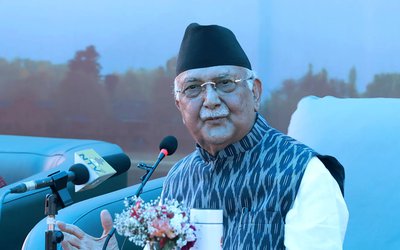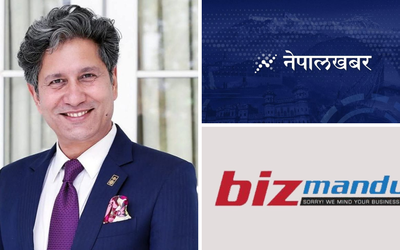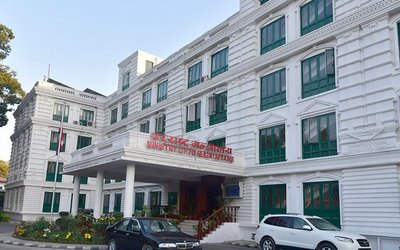More on News





Despite more than five decades of experiment with democratic practice, the behavior and mind-set of politicians and bureaucrats have not changed to allow for far reaching civil service reforms based on results orientation. The success of any civil service reform hinges on the political as well as bureaucratic will and commitment, and the utilization of reforms in the context is crucial for its success.
Nepal provides a unique case where efforts for administrative reforms are moving amidst radical political changes and episodes of instability. It also provides another illustration where all the leaders, politicians and members of the civil society speak unequivocally about the need to introduce far reaching administrative reforms. Yet their contribution for carrying the reforms process forward has always been far less than what was expected of them.
The Nepalese civil service is suffering from some major deficiencies. These deficiencies affect the overall functioning of the civil service. The past reforms initiatives have brought about a new set of problems, co-existing with the past ones. Taken together, these, with the passage of time, have become more intense, deep rooted and pervasive.
Civil servants suffer from uncertain prospects for career development. Merit and quality aspects are often compromised at the cost of efficiency, honesty, and hard labor. Insufficient linkages of merit to promotion in the career drives the staff to a point of total desperation, depriving them of whatever little courage, innovation and vigor they possess.
The frequent amendment of substantive provisions of the Acts and Regulations, in itself, is a source of instability in the overall civil service. Anti-corruption mechanism has remained the weakest, despite the fact that institutions such as the Commission for the Investigation of the Abuse of Authority have been given a constitutional status. This is reflected in the massive corruption reported to have prevailed in the Nepalese civil service.
Reforms usually start with political initiatives and are implemented by civil servants. However, political situation continues to remain unstable and the government has undergone frequent changes with the result that continuity in the efforts at the political level is often missing in the implementation. Civil service reform has never been the top priority of the government.
Bureaucrats are found to react negatively towards attempts to implement reforms unless such reforms include the possibility of increasing their personal benefits. Bureaucrats are more conservative and resistive to change than their political masters, ministers, politicians, or people at large. One of the reasons is that, at the end of the day, it is the civil servant who has to take on the responsibility to implement new measures, which means new and additional responsibilities, additional risks, departure from the existing system where they are accustomed to working with, and involves changes in the functions and responsibilities they consider as being not commensurate with existing perks and privileges or that that they see less possibility for an increase in their perks and privileges.
In recent years, bureaucracy has been too much politicized. Chances of being appointed to the position of the secretary or other similar positions, Departmental Head, and the chief of the public enterprises has become a zero-sum game to those who do not enjoy any proximity or sympathy with one or another political party.
The biggest source of political influence is in-built in the present Civil Service Act, which is amended to reflect that in the positions equivalent to Special Class/ Secretary, the Promotion Committee has to recommend candidates three times in number of the vacant positions and the government can appoint anybody from the list. This has motivated the civil servants to develop relationship with the politicians to exert his/her influence for promotion. In fact, the provision of the Act encourages political parties to derive benefits through such appointments.
Many civil servants are found to be working under political influence. In many of the issues that are directly related to the civil service, the trade union members hold different opinions and are dictated by the informal party affiliations. The political parties also use the civil servants for their own purpose. This has created all the more difficult situation in terms of separating political influence on the civil service. The simple truth is that bureaucrats must be stopped from siding with one or the other political outfit for personal gains. Freeing their minds from politics and not allowing their political ideology to be reflected in the work place could go a long way in addressing many shortcomings in Nepal’s bureaucracy, the brunt of which is being borne by the innocent Nepalese. The Civil Service Act, 1992, and subsequent amendments, however, forbid any civil servant to exert undue political or other influence to serve own self interest.
(Dr. Shakya is a former senior civil servant. Currently, he serves as an independent consultant on issues of administration and development. Excerpts of his research paper "Why Civil Service Reforms fail? – A Case of Nepal" published in Administration and Management Review Volume 21, No.2, August, 2009)







